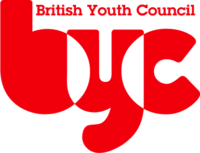Votes at 16 in the EU referendum is now one step closer following a vote in the House of Lords, where 293 Lords voted in favour of an amendment to extend the franchise in the EU Referendum Bill. The Votes at 16 Coalition will now turn its focus back on the House of Commons as MPs prepare to accept or reject the amendment put forward by the Lords.
The British Youth Council, which has been campaigning for the enfranchisement of 16 and 17 year olds since 1998, have been calling on politicians to ensure 16 and 17 year olds are enfranchised in the “In Out” EU Referendum set to be taken in 2017 throughout the year with support from politicians on both sides of the Commons growing.
Ife Grillo, Vice Chair of Campaigns and Communications, British Youth Council said: “We at the British Youth Council have consistently called for 16 and 17year olds to be included in the EU Referendum and it’s great to know that common sense has finally prevailed! Earlier this year MPs decided to deny them the vote, and it’s great to see the House of Lords battling them on their poor judgement!”
“Young people have been knocking on the door of democracy for decades and Scottish 16 and 17 year olds have already proven that we’re ready during the referendum last year, that’s proof enough that young people are more than capable of taking part in this historical vote!”
Megan Dunn, President of NUS, a member of the Votes at 16 Coalition said: “Young people will bear the consequences of the EU referendum vote so it is only right that they should be able to have their say – so it’s very positive that peers have agreed with this common-sense case.
“The pressure is now on MPs to also recognise the right for young people to have their voice heard. Students across the country will be calling on their MPs to make sure they vote the right way when the bill returns to the House of Commons.”
The British Youth Council strongly believes that after decades of changes in our attitudes and vales resulting in amendments to the enfranchisement of more and more people, like women in 1918 and 18-24 year olds in 1969, that lowering the voting age is a late but necessary change in our voting system.
Proof that the UK is ready for votes at 16 is mounting up, particular after last years Scottish Referendum which saw 80% voter registration and 75% voter turnout among 16 and 17 year olds, discarding arguments reporting a lack of appetite for involvement among young people. Most young people uncertainty or resistance is about their ignorance of the political system and who best to vote for – which Scotland has shown can be addressed by clear and prepared education in schools and accessible media – which is obvious and why both young people and adults in Scotland are now strongly in favour. With this clear support from the Scottish Government, as well as the National Assembly of Wales and the Northern Ireland Assembly it is becoming untenable to deny 16 and 17 year olds the vote during any other elections or public referendums.





